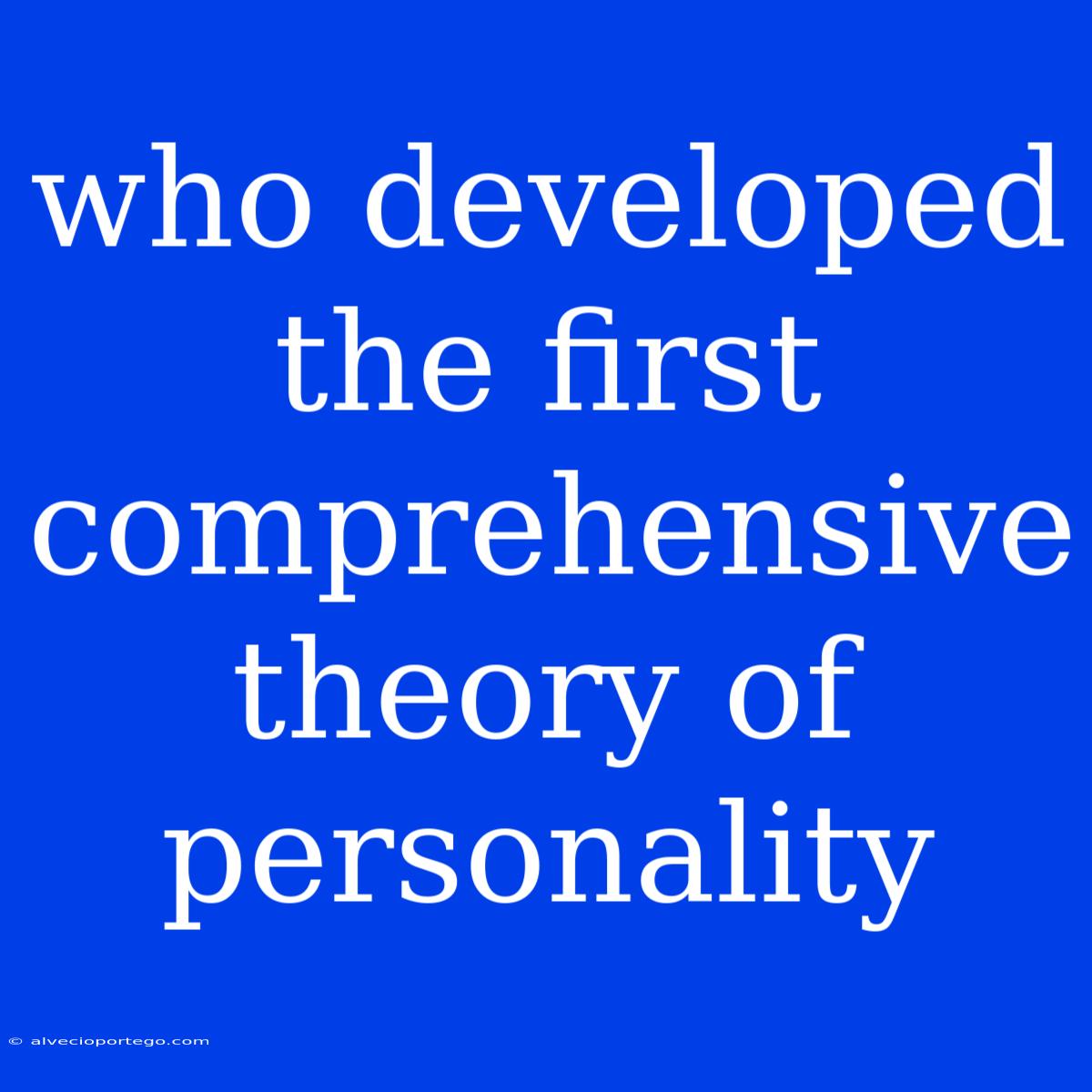Who Developed the First Comprehensive Theory of Personality?
The question of who developed the first comprehensive theory of personality is a complex one, as the field of personality psychology has evolved over time. While many theorists have made significant contributions, there is no single figure universally recognized as the "father" of comprehensive personality theory.
However, several early thinkers laid the groundwork for modern personality theories:
1. Hippocrates (c. 460-370 BCE): A Greek physician, Hippocrates proposed a theory based on four humors or bodily fluids – blood, phlegm, yellow bile, and black bile. He believed imbalances in these humors led to different temperaments: sanguine (blood), phlegmatic (phlegm), choleric (yellow bile), and melancholic (black bile). While simplistic, this theory laid the foundation for linking personality to biological factors.
2. Galen (c. 129-200 CE): Building on Hippocrates' work, Galen further developed the humoral theory, emphasizing the importance of temperament in understanding human behavior. He also introduced the concept of the four temperaments being related to different mental and emotional states.
3. Immanuel Kant (1724-1804): This German philosopher emphasized the importance of individual differences in his philosophical writings. He argued that each individual possesses a unique "character" that influences their actions and experiences.
4. Wilhelm Wundt (1832-1920): Often considered the father of experimental psychology, Wundt's work emphasized the scientific study of mental processes. He contributed to the development of psychological testing and the study of individual differences, laying the groundwork for later personality theories.
5. Sigmund Freud (1856-1939): While not the first to propose a theory of personality, Freud's psychoanalytic theory was perhaps the most influential and comprehensive theory of the early 20th century. He proposed the concepts of the id, ego, and superego, as well as the importance of unconscious drives and early childhood experiences. His work significantly shaped the field of personality psychology, despite being highly controversial.
6. Gordon Allport (1897-1967): Allport's theory emphasized the uniqueness of each individual and focused on the importance of traits in understanding personality. He developed a system of classifying traits into cardinal, central, and secondary traits. His work, along with other personality theorists like Hans Eysenck and Raymond Cattell, paved the way for the development of trait theories, which are prominent in modern personality psychology.
While these figures laid the groundwork for the development of personality theory, it's important to note that no single figure can be credited with creating the first comprehensive theory. Personality psychology continues to evolve, with new theories and perspectives emerging constantly.
Ultimately, the development of comprehensive personality theories is a collaborative process that builds upon the work of previous generations of scholars. The quest to understand the complex nature of human personality remains an ongoing endeavor.

